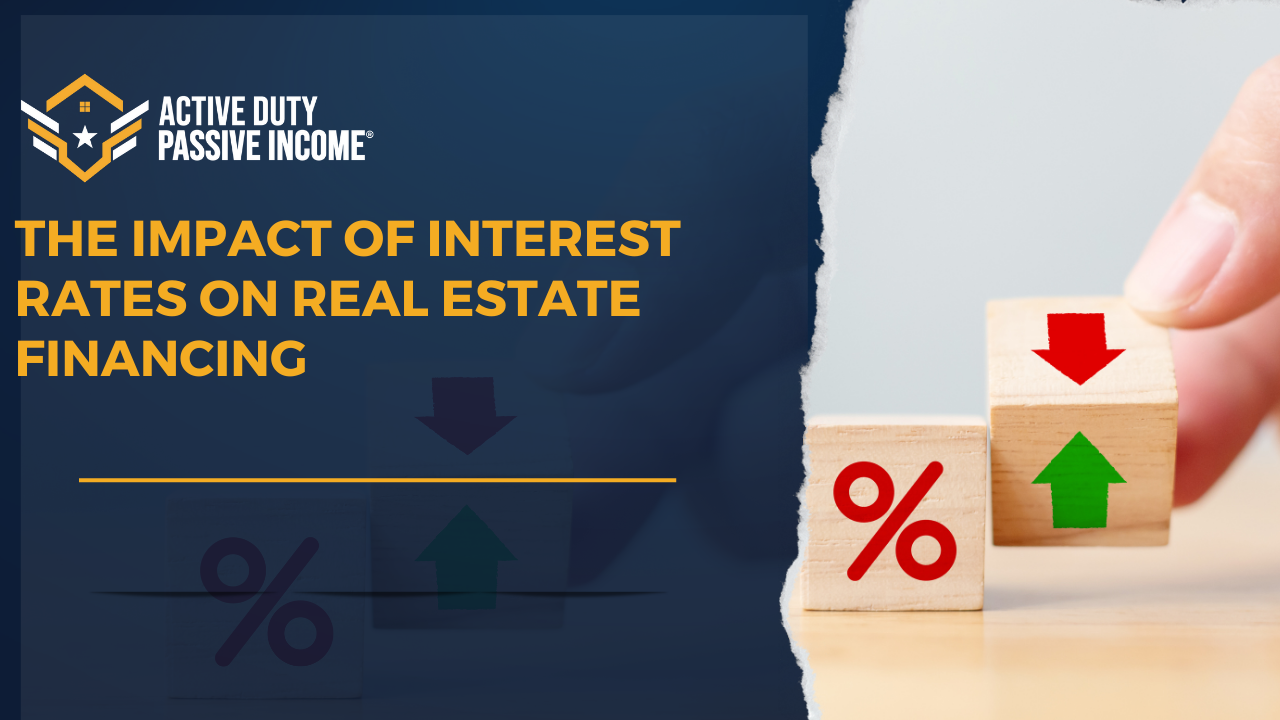Wanting to buy a property but worried about the interest rate and how it will affect your purchase? Stay tuned to learn the impact interest rates has on buying real estate!
Interest rates are a fundamental component of the real estate market, playing a crucial role in shaping investment decisions, mortgage affordability, and overall market dynamics. Whether you’re a seasoned investor or a first-time homebuyer, understanding how fluctuating interest rates influence real estate financing is essential for making informed decisions and navigating market changes effectively.
In this blog, we’ll delve into the intricate relationship between interest rates and real estate financing, examining how changes in interest rates can impact various aspects of the real estate market. We’ll also explore strategies for investors to mitigate risks and capitalize on opportunities in an environment of fluctuating interest rates.
The Impact of Interest Rates on Real Estate Financing
Mortgage Affordability
One of the most direct effects of fluctuating interest rates is on mortgage affordability. When interest rates rise, the cost of borrowing increases, leading to higher monthly mortgage payments for homebuyers. As a result, prospective buyers may find themselves priced out of the market or forced to settle for smaller homes or less desirable locations.
Conversely, when interest rates fall, borrowing becomes cheaper, making homeownership more accessible to a broader range of buyers. Lower interest rates can stimulate housing demand, leading to increased home sales and rising property prices.
Investment Returns
For real estate investors, interest rates play a critical role in determining investment returns. Rising interest rates typically lead to higher borrowing costs, which can compress profit margins for investors who rely heavily on leverage. Additionally, higher interest rates may dampen property values, as the present value of future cash flows decreases with higher discount rates. Conversely, falling interest rates can boost investment returns by reducing borrowing costs and increasing property values. Investors who lock in low-interest financing during periods of declining rates may benefit from higher cash-on-cash returns and capital appreciation over time.
Refinancing Opportunities:
Fluctuating interest rates create opportunities for homeowners and investors to refinance existing mortgages to lower their monthly payments or extract equity from their properties. When interest rates decline, borrowers can refinance their mortgages at lower rates, potentially saving thousands of dollars over the life of the loan.
Conversely, rising interest rates may prompt homeowners to lock in favorable rates through refinancing before rates climb further. Refinancing can also be used strategically to convert adjustable-rate mortgages (ARMs) into fixed-rate mortgages to hedge against future rate increases.
Commercial Real Estate Financing
In the commercial real estate sector, interest rates significantly impact property valuations, investment returns, and financing terms. Rising interest rates can increase the cost of capital for commercial property acquisitions and development projects, potentially slowing down investment activity.
Moreover, higher interest rates may lead to downward pressure on commercial property values, particularly for assets with longer lease durations. Investors and developers must carefully evaluate the impact of rising rates on property cash flows and adjust their underwriting assumptions accordingly.
Navigating Rate Changes: Strategies for Investors
Stay Informed
Monitor economic indicators, central bank announcements, and market forecasts to stay informed about potential changes in interest rates. Understanding the macroeconomic factors driving interest rate movements can help investors anticipate market trends and adjust their investment strategies accordingly.
Diversify Your Portfolio
Diversification is key to mitigating risks associated with interest rate fluctuations. Allocate your investment capital across different asset classes, geographical locations, and property types to reduce exposure to any single market or sector. Diversification can help cushion the impact of adverse market conditions on your overall investment portfolio.
Evaluate Financing Options
During periods of low-interest rates, explore financing options that offer favorable terms, such as fixed-rate mortgages or long-term commercial loans. Locking in low-interest financing can provide stability and predictability in your cash flow projections, safeguarding your investment returns against future rate increases.
Stress Test Your Investments
Conduct thorough financial analysis and stress testing to assess the sensitivity of your real estate investments to changes in interest rates. Evaluate how different interest rate scenarios could affect property cash flows, debt service coverage ratios, and overall investment returns. By identifying potential vulnerabilities upfront, you can proactively implement risk mitigation strategies and protect your investment portfolio from adverse rate movements.
Fluctuating interest rates have a profound impact on real estate financing, shaping mortgage affordability, investment returns, and market dynamics. As investors navigate an environment of uncertainty and volatility, understanding the relationship between interest rates and real estate is essential for making informed decisions and managing risks effectively.
By staying informed, diversifying your portfolio, evaluating financing options, and stress testing your investments, you can position yourself to capitalize on opportunities and navigate rate changes successfully in the ever-evolving real estate market. With careful planning and strategic foresight, investors can adapt to changing market conditions and achieve their long-term financial objectives in the dynamic world of real estate investing.
If you want to learn more about navigating interest rates and your next purchase, hop on a free mentor call so we can talk through it!









